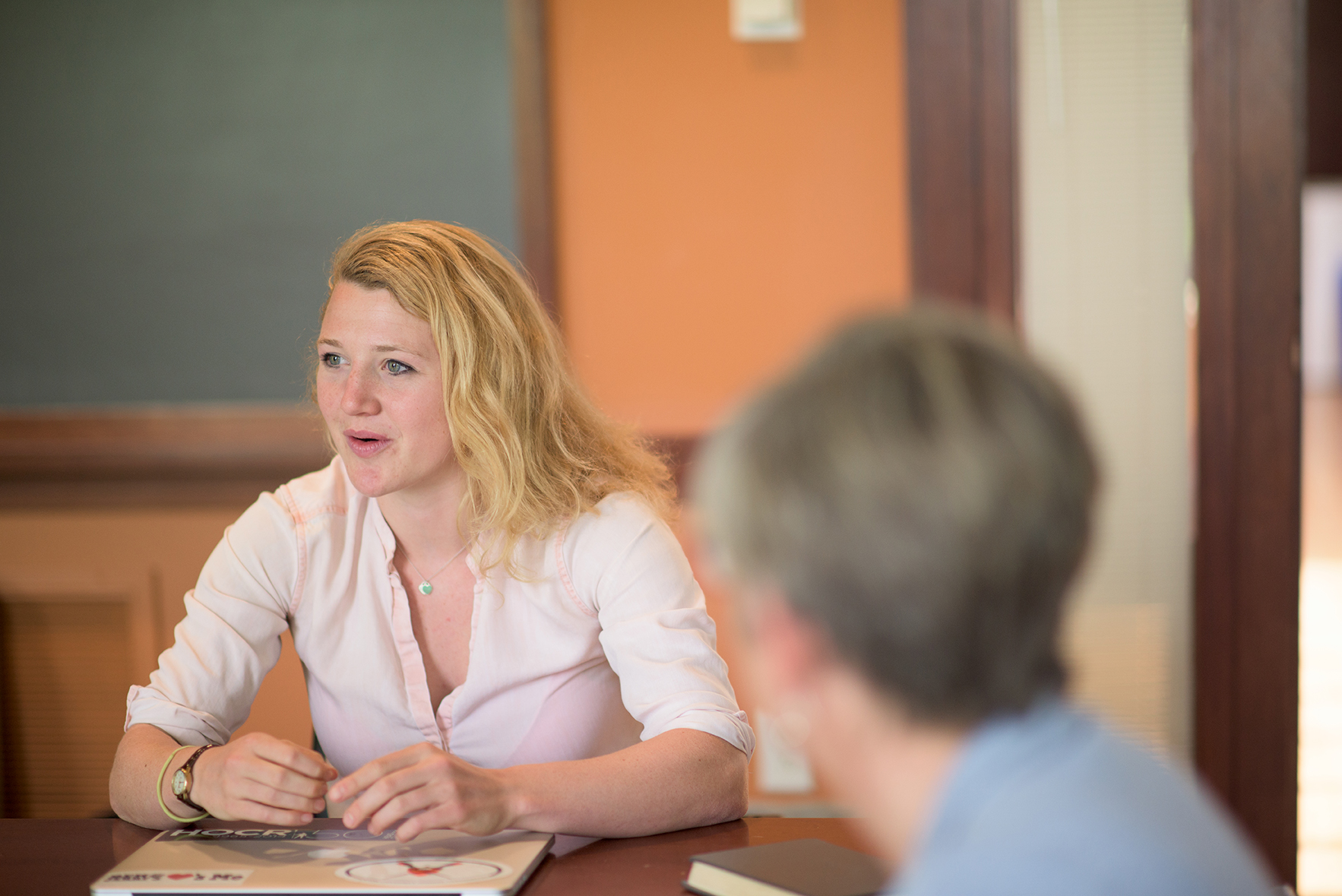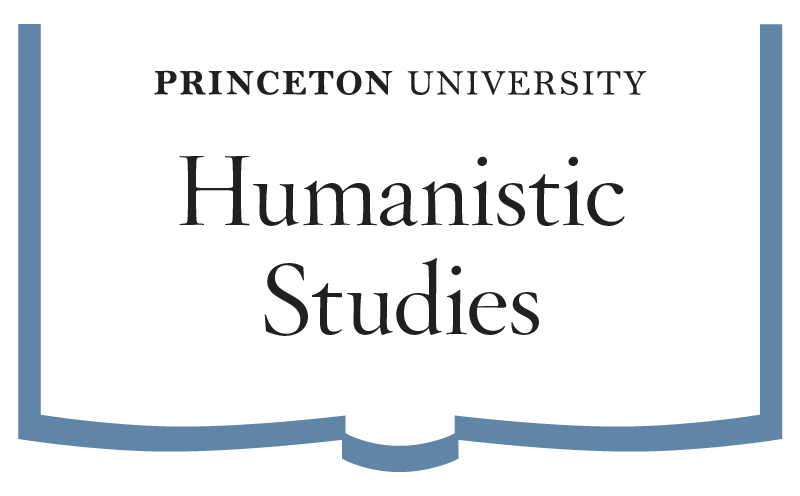
Haarlow Prizes
Each year, the Humanities Council awards two Haarlow Prizes of $250 to the best papers written for 200-level Humanistic Studies courses.
Equal weight is given to research papers and to works in which students offer their own interpretation of a particular text or passage. Papers may be short textual analyses or longer studies.
Submissions are nominated by course instructors and judged by a faculty panel at the end of the academic year.
Criteria are:
- originality of thesis;
- depth of insight;
- skill of presentation;
- and the significance of the paper’s contribution to a new understanding of a text or issue.
The Program in Humanistic Studies awards these prizes in memory of the late A. William Haarlow III ’63, who cared deeply about Humanistic Studies. His generosity and that of his family have helped make the Program flourish.
Greece & Italy Study Trips
Educational trips to Greece or Italy will offer experiential knowledge of literature, the arts, history, philosophy, and religion.
Greece: Hellenic Culture in Context
The journey will begin with antiquity, revisiting classical Greece through its most important archaeological sites, exploring multiple dimensions of ancient, Byzantine, Roman, medieval, and modern Greece. We will see the Acropolis and ancient Agora. In addition, we will imagine the world of Homer and the tragedians by visiting the mountaintop citadel of Mycenae, where the palace of Agamemnon and Clytemnestra once stood. We will visit Epidaurus, home of the most significant Greek theater, and the nearby site sacred to the healing god Asclepius. At Delphi, we will experience the mystery of the oracle and see the sites of Apollo’s and Athena’s temples. Roman buildings and roads will grant us insight into the complex historical relationship between Rome and Athens.
We will also spend time at sites and museums that explore the religious dimensions of Greece from the biblical era forward, such as Acrocorinth and the Hosios Loukas monastery. We will visit Nafplion, a small city rich in Venetian influences, which was the first capital in 1830 after Greece won independence from the Ottoman Empire. Our museum visits in Athens may include the new Acropolis museum, the Museum of Greek Folk Art, the Jewish Museum, the Benaki Museum, the National Archaeological Museum, and Gennadius Library.
Italy: Research Trip
We begin with the ancient heart of the city, visiting the Roman forum, Palatine Hill, the Capitoline museums, and the Colosseum. We shall visit the masterpieces of the Campus Martius, including the Pantheon and the Ara Pacis (“Altar of Peace”). A trip to the Bay of Naples will enable us to visit the sites of Pompeii and Herculaneum, the closest it is now possible to get to visiting an actual Roman city. Then we move to the world of the Renaissance.
We will see Michelangelo’s frescos in the Sistine Chapel and Raphael’s Stanza della Segnatura in the Vatican, as well as St Peter’s Basilica. We will visit the Villa Giulia, the Galleria Borghese, and the Palazzo Farnese. We will also look at Sant’Ivo alla Sapienza and Caravaggio’s paintings in San Luigi dei Francesi.
Trip Details
The Seeger Center for Hellenic Studies supports the Greece trip. Both trips offer the opportunity to build upon the classroom experience through first-hand exposure to Greek and Roman history and culture. Approximately 10 to 12 students will be selected to participate in each trip.
Students of HUM 216-219 have spent an intensive year studying texts and images. These academic trips offer the opportunity to deepen and expand the HUM 216-219 classroom experience through immersion in a variety of ancient, medieval, and modern contexts. These trips thereby aspire to provide both a sequel to the HUM course and a transition to further involvement in the Programs in Hellenic Studies and Humanistic Studies.
During an intensive week, we will visit sites, structures, artifacts and landscapes that resonate with the texts and themes of HUM 216-219, exploring art, religion, politics, and history through interdisciplinary means. We will be just as concerned with the legacy of the classical in the radically changed medieval and modern worlds as with the classical itself.
During the fall term, a small number of mandatory preparatory events will provide cultural and historical orientation in the context of preparation for individual research projects. In addition to a schedule of group activities, each trip will offer time for independent exploration. For one day, each student will pursue an independent project in one or two of the Greek or Roman museums, sites, or libraries. As part of the preparation process, students will attend meetings to help them elaborate their project in advance of our departure. They will receive guidance from art museum curators, librarians, and faculty from a wide range of departments, who will help them develop a feasible project that lends itself to independent research and that makes use of the limited time available to examine or consider a circumscribed object or collection of objects. Projects may well take their start from Princeton’s own very rich collection of historical materials but may also focus on a significant theme or methodological question. Students will be expected to submit a research report on their return and to present their work to the current HUM students and faculty. General areas of inquiry might approach the following issues, although this is just a short list to provoke thought:
- the interaction between Greek and Roman art or culture
- ancient temples and modern churches
- the concept of the museum
- archaeology and the politics of restoration and preservation
- the preservation of the past across a range of periods
- literature about spaces and buildings
- the relationship between art and religious practice
- art as an instrument of persuasion
- visualizing knowledge and power
- the traces of history in material culture (e.g. coins, weapons)
- the character and function of churches, monasteries, mosques
- religion and politics between the East and the West
- representations of Greek myth in art and architecture
- objects/icons and the presence of the divine in the Byzantine period
- theater, healing, and sacred space
- politics of athletic games
- ancient Greek medicine
- performance (comic/tragic masks, dance)
- the reception of the classical world in modern Athens, Greece, and Europe
- city-states and nation states
- Rome as a capital city
- the reception of classical Rome in later periods
- the reception of Ovid and classical mythology in later periods
Senior Thesis Funding
Juniors and seniors pursuing the minor in Humanistic Studies are eligible for research grants of up to $3,000 for the purchase of books, supplies, and other materials needed to complete the senior thesis.
How to Apply
Submit the application through the Student Activities Funding Engine (SAFE).












